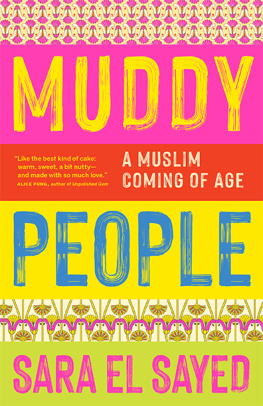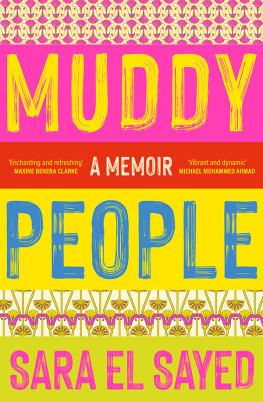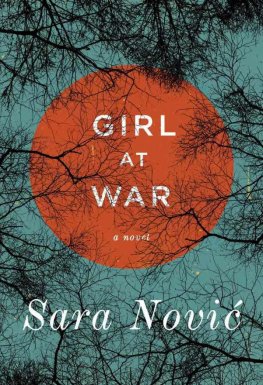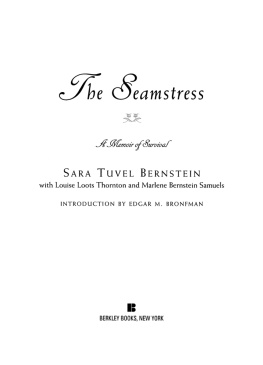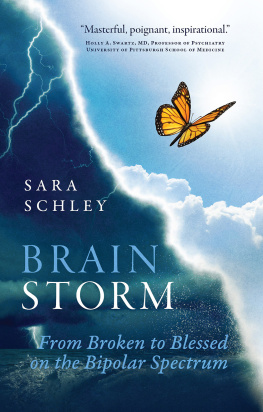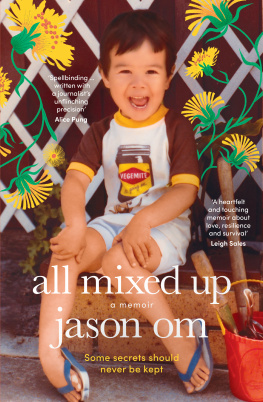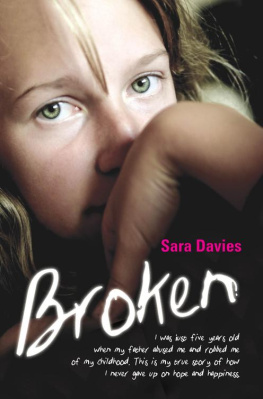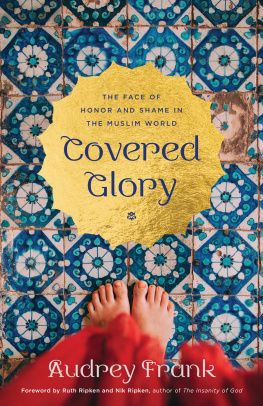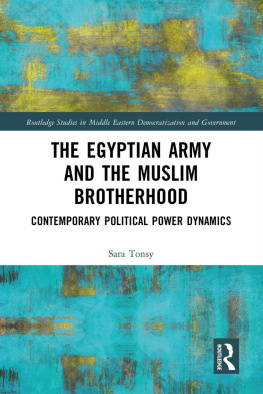
To my familyMama, Baba, Nana, Aisha and Mohamed. It is an honour to be part of us.

Contents

THE GIRL IN THIS PICTURE is me, just after publishing my first piece of writing, in Growing Up African in Australia. I am doing a radio interview and have been asked to provide a headshot. My hair is straightened because I attended a friends wedding a few days earlier. In this picture my hair is severely damaged. When loose, it sits at approximately six different lengths, and falls out every time I touch it. The state of my hair is due to a combination of harsh chemicals, the wrong hair oil mixed with a too-hot iron, tying it up when its wet (upon drying, it expands and snaps against the hair tie) and general negligence. I put on a clean white t-shirt and stand in front of my mothers brick house. I think I look okay.
In a few months time this picture is used again, to accompany an excerpt of a different work of mine, in a magazine. I send the same headshot for everything because I cannot afford to hire a photographer to take a better one. I also cannot afford to straighten my hair again.
When my story runs, I notice that my photo looks a little different. The colour of my skin is lighter. I look again, and I check with friends to make sure that I am not seeing thingsthat the corners of my mouth have in fact been erased, the size of my lips reduced. I am now pale-faced and pursed-lipped.
At first, I am embarrassed. I hadnt anticipated that the shade of my skin and the size of my lips would be a problem. My hair was the issue, and Id fixed that. Then I am angry. The kids in school called me muzzie, mud skin, slave, sand n*gger. Muzzie, short for Muslim, sounds like mozziethe Aussie word for the parasite that sucks blood. The insect that you swat. I am light-skinned, but back then, it didnt matter. I wasnt white, and that was enough.
Some shout about muddy skin because they think its funny. Others try to clean you up.

IN A SHED MY MOTHER and I repurposed as a writing space, Gina is curled up on my lap as I sit at my desk. The rain is hammering the roof. Gina is a male cat, but the word for cat in Arabic is feminine, so to us she is Gina.
Im in Queensland, but in the middle of winter it is cold even in the sun. The small flame of the candle, which I light every day, helps a little. In the winter my hair is drier, my skin paler. I used to relish these months when I felt just a little whiter. But not anymore. When I visit my father on the weekends, he tells me I look ill.
I talk to my father almost every day. The contact is concentrated right now because theres a white boy in the picture, and my father is on guard. He wants me to know the rules. We are Egyptian, after all. We are Muslim, after all. We are not white.
My parents advice has always been a crucial part of my life. When I say their advice, I mean them telling me to do things and me doing them. Their rules govern how I live. Our culture governs how I live. The fact that I am an adult does not change this. There have been many rules over the years, some logical, some not. Sometimes they contradict one another. It means that sometimes things get a little messy. A little muddy.
Writing about my family is not easy, because we are not perfect. I would say we are doing our best, but sometimes we are acting our worst.
On my desk is a stack of books. Its crowned by a wax-spattered copy of The Family Law by Benjamin Lawa library copy, so Im scared to take it back. I borrowed it because I am struggling to write about my family.
I know what people expect when they pick up this book. Stories about racism, about Islamophobia. The name-calling, the ostracising, the bullying. Some of that is in here. But thats not all this book is about. Its about my family, and what we are on the inside too. Its hard to write about family because, as I have explained to my parents, one persons perspective is not the same as anothers. My father might say the sky is blue and my mother will say to take an umbrella. The stories we tell dont always match up. Thats something that Ive had to accept in writing all of this down.
I want my parents to know that this book is told through my eyes: those of a girl growing up and trying to understand. I still have a lot of growing to do. These are versions of my family that have existed to me throughout periods of my life.
I love my parents. They are both good people. They were just not good together.
These are the Rules
MAMA LEARNED EARLY ON THAT her daughter was different from her son. Mohamed threw tantrums; Soos stayed quiet if you gave her something sweet. In Arabic, a soos, a cavity, is what you get after eating too much sugar. My parents gave me the nickname when I was four. By that time, I had two gold crowns and twice as many holes in my teeth.
In my mouth now, one would struggle to find a tooth not stuffed with a filling. I was never in the habit of maintaining good oral health. We arent brought up that way; we dont nurture what isnt healthy. When our grass isnt as green as we want, we concrete over it.
Mohamed was difficult from the beginning. Stuck sideways inside my mother, he didnt want to come out.
Its too much, the delivering doctor said in Arabic, throwing his hands in the air. He wont budge. I dont know what to do. He left the room to pray and came back smelling like cigarettes. By that time, Mama was screaming and Mohamed was crowning. By the grace of God, said the doctor.
My father was happy his first child was a boy. They named him Mohamed, like every other baby boy born in Alexandria, Egypt, on that day.
When my grandparents came to see him, the nurse brought the wrong baby.
Thats not my son, said Baba.
His son, of course, was the one with the big nose.
It was like a hook, Nana tells me, reminiscing about the birth of her first grandchild. She makes a hook shape with her finger, in case words dont do justice to the severity.
It was big, Mama concurs.
Huge. So ugly. Like his grandfathers.
An Arab nose, for sure.
And he was green. All over. Like an alien. Green and a big nosevery unattractive. A truly ugly child.
My father describes my birth as no problems. The biggest hitch, in fact, was Mohamed asking for squid sandwiches.
Soobeyt soobeyt! shouted the toddler, standing up in the front seat of our Lada Niva. Baba drove him to the sandwich shop after dropping Mama at the hospital.
I ask Mama about my birth and she describes being knocked out by an anaesthetic, then being shaken awake by doctors telling her to push, then passing out, then waking up to the smell of squid, then seeing the contents of her stomach on the floor.
Mohamed never slept through the night as a baby. Soos never woke up. I didnt even wake during my first

